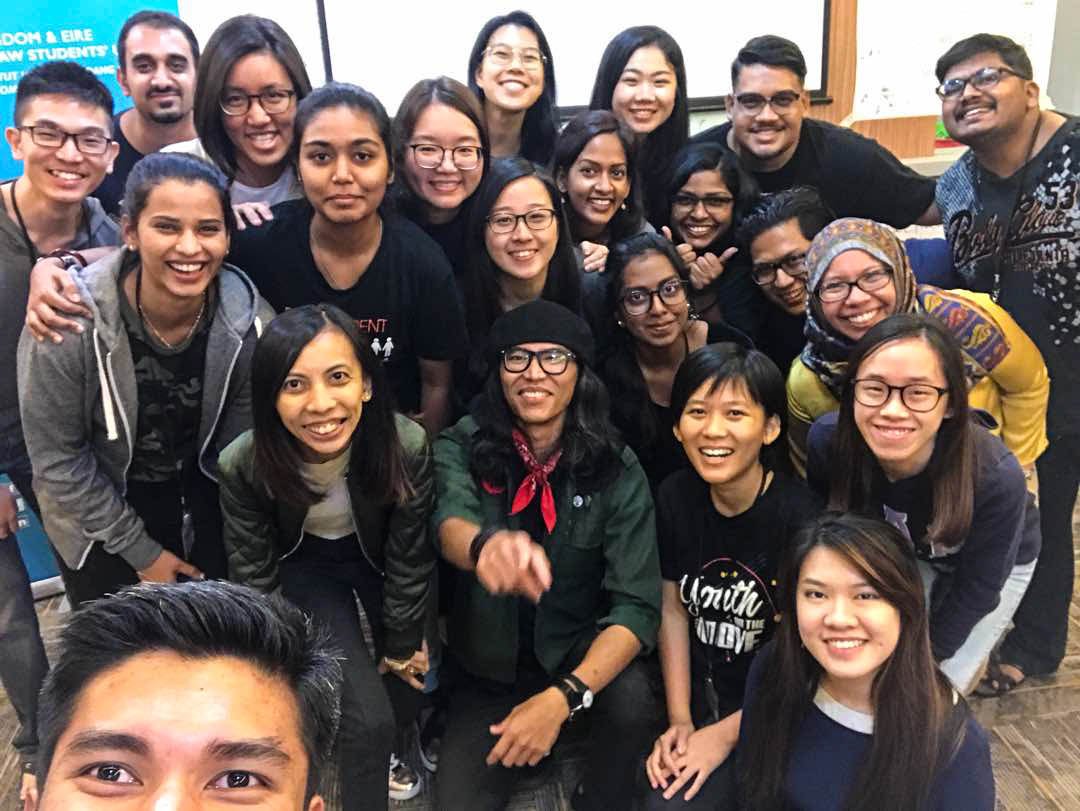
From the streets to the courts: MCCHR’s integrated approach to social change
Empowering young people and civil society through knowledge and tools
In the past five years, the MCCHR has directly reached out to more than 8,000 young people through its UndiMsia! chats, Laporan Rakyat, Idola Demokrasi, Sekolah Aktivisme and empowerment of Orang Asli projects.
To date, the MCCHR has organised more than 100 UndiMsia! chats. These public dialogues have provided a safe platform for young people to attend and discuss current issues, thus increasing their awareness and understanding of important issues affecting them as Malaysians. The MCCHR has also encouraged the use of its community space by youth volunteers and partner NGOs either for free or at a nominal fee. This has seen an increase in the number of public events organised by various civil society groups promoting socio-political themes such as human rights, constitutionalism, electoral reform and environment.
The Laporan Rakyat project carried out from 2011 to 2012 challenged the young people in Hulu Langat and the Klang Valley to assess their Member of Parliament and State Assemblyperson. The project highlighted how little electorates knew about their elected representatives, indicating a lack of concern by the voter population on who they vote into power. This reinforces the relevance of UndiMsia!’s projects and paved the way towards the development of an user-friendly and interactive online portal called MyMP.
UndiMsia! has produced 12 infographics, one interactive quiz, one DIY toolkit and seven infovideos, of which the latter have been viewed by more than 120,000 people on YouTube. These information, education and communications (IEC) materials form part of a valuable collection at the MCCHR’s resource centre. Apart from distributing them to the public, the IEC materials have been used by other civil society organisations (CSOs), as well as national and state institutions as part of their education and advocacy tool. This has enriched the pool of resources available for CSOs and governmental institutions.
Building leaders, inspiring activism
The MCCHR has encouraged critical thinking and problem-solving skills in urban and semi-rural young people by carrying out more than 60 Idola Demokrasi workshops under its UndiMsia! programme. The workshop challenges participants to analyse an issue critically through the identification of its roots and causes as well as the power structure that can potentially impact the outcome of the said issue. Once the participants have a clearer understanding of this, the participants are taught how to develop concrete action plan so that they can play an effective role in addressing the issue with appropriate stakeholders.
For those who have shown a deeper interest in developing their skills as activists, they have benefited from a series of coaching sessions under the Sekolah Aktivisme project.
Many of the Idola Demokrasi and Sekolah Aktivisme participants have gone on to lead social campaigns or become trainers for the Idola Demokrasi workshop, imparting their knowledge and skills while inspiring activism at the same time.
Building DIY action communities
One of the most measurable impacts of the MCCHR’s work is the empowerment of Orang Asli in Hulu Langat. The MCCHR saw the successful implementation of a tripartite collaboration called the Adopt-the-Street in one selected Orang Asli village. The said Orang Asli community, together with their State Assemblyperson and civil society organisations formed a concrete partnership to refurbish a public amenity through a series of consultations and workshops. This project saw how a community organised themselves to solve problems with their elected representatives.
Using Courts to change laws and policies
The MCCHR has taken up between three to five strategic litigation cases per year to defend and promote constitutional protections and human rights. These cases are in the areas of right to fair trial, freedom of expression and peaceful assembly, freedom of religion, equality and anti-discrimination and protection of human rights defenders.
The MCCHR believes that strategic litigation can play an important role in ensuring that rights are legally enforced. Continued and focused efforts in pursuing Court cases that have precedent-setting value, will in the long-term bring about social change and advance human rights in Malaysia.
The MCCHR’s strategic litigation project has yielded positive results, creating ground-breaking precedents through cases such as Noorfadilla binti Ahmad Saikin v Chayed bin Basirun and 5 others [2012] 1 MLJ 832, Indira Gandhi d/o Mutho v Perak Registrar of Converts & Ors [2013] 7 CLJ 82 (HC), and ZI Publications Sdn. Bhd. & 1 Ors v Ministry of Home Affairs [2015] 5 MLRA 690.
The MCCHR, in partnership with the Malaysian Bar Council and American Bar Association, have conducted at least four annual and three thematic strategic litigation training camps benefitting close to 100 young lawyers and pupils-in-chamber. These camps have given birth to the publications of three strategic litigation training manuals for trainers. It has also signed a memorandum of understanding with the United Kingdom and Eire Malaysian Law Students Union (KPUM) under its ASASI programme to conduct an annual strategic litigation camp catered for their members.
In 2015, the MCCHR and Malaysian Bar Council organised the first National Strategic Litigation Conference in Kuala Lumpur. It was attended by more than 150 participants consisting of judges, lawyers and civil society organisations.
Bulletin
Subscribe to our email newsletter to receive the latest news and updates from the MCCHR team directly in your inbox.
for Constitutionalism
and Human Rights